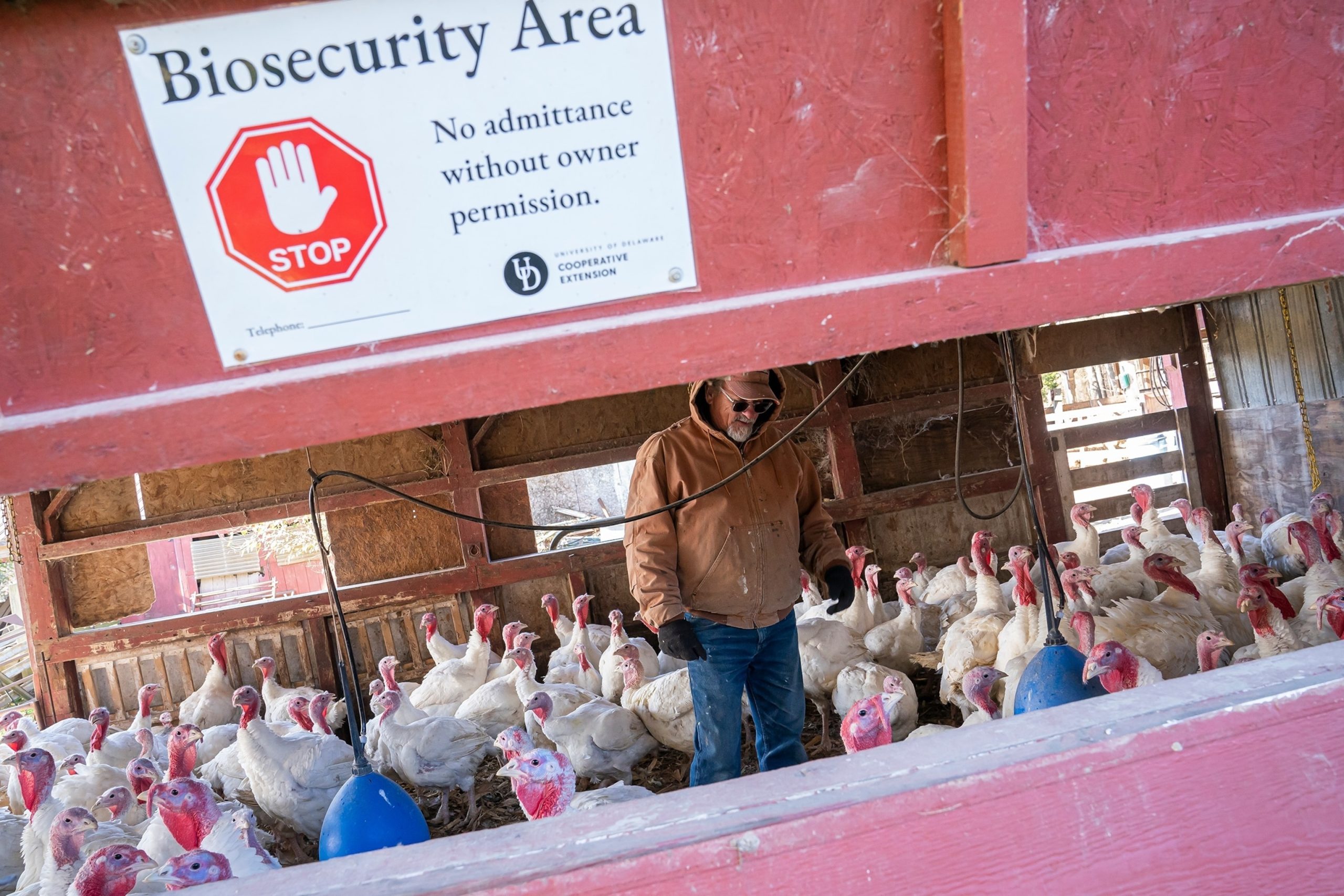This year’s flu vaccine significantly reduced the risk of hospitalization in the Southern Hemisphere but wasn’t as effective as the vaccine used in the prior season, according to an early study from the Centers for Disease Control and Prevention published Thursday.
Countries in the Southern Hemisphere experience their flu season before countries in the Northern Hemisphere. This often provides a glimpse as to what the upcoming flu season may potentially look like for the Northern Hemisphere, though it is not fully predictive of what may occur in each individual country, health officials said.
Researchers found the seasonal flu vaccine reduced the risk of hospitalization from flu by 35% across five Southern Hemisphere countries: Argentina, Brazil, Chile, Paraguay and Uruguay. The shot was nearly 59% effective at reducing hospitalization among those with underlying medical conditions.
“Northern Hemisphere countries may experience similar levels of protection if similar influenza viruses predominate during the upcoming 2024-2025 flu season,” the authors wrote.
While the vaccine did offer protection, it was lower than the 2023 flu vaccine, which cut flu-related hospitalizations in the Southern Hemisphere by half, according to the CDC.

Dallas County Commissioner Dr. Elba Garcia receives a flu shot during the Dallas Falls Prevention Awareness Day of Action on Sept. 26, 2024, in Dallas, Texas.
Richard Rodriguez/Getty Images for National Council on Aging
Each year, scientists update the flu vaccine based on their best estimate about what formula will be a good match against a constantly evolving virus.
In seasons where the flu vaccine matches circulating strains, the flu shot has historically been shown to reduce the risk of going to the doctor by 40% to 60% in seasons, according to the CDC.
Recent CDC estimates indicate the upcoming respiratory disease season will likely have a similar or lower number of combined peak hospitalizations due to COVID-19, influenza and RSV compared to last season.
During the 2023-2024 season in the U.S., there were between 380,000 and 900,000 flu hospitalizations. Estimates from the CDC indicate flu vaccination prevented 105,000 to 240,000 hospitalizations.
Everyone over the age of 6 months is recommended to get a flu shot each season – ideally before the end of October, according to the CDC.
Some children, including those under 8 years old receiving their first flu shot, may need two doses four weeks apart. Older adults over age 65 may opt to get a higher dose version.
The CDC study said that although South American countries prioritized vaccinating young children, people with comorbidities, and older adults, influenza vaccination coverage levels were below pre-COVID-19 norms.
“This finding is consistent with post pandemic declines in vaccination coverage across the America during the COVID-19 pandemic,” the authors wrote. “Vaccination remains one of the most effective measures to prevent influenza-associated complications, including death.”
The Centers for Disease Control and Prevention (CDC) recently released a report that has brought some positive news amidst the ongoing COVID-19 pandemic. According to the report, there has been a 35% decrease in hospitalization risk in the Southern Hemisphere among individuals who received the flu vaccine.
The Southern Hemisphere, which includes countries like Australia, New Zealand, and South Africa, experiences its flu season during our summer months. This means that data from the Southern Hemisphere can provide valuable insights into how effective the flu vaccine is at preventing severe illness and hospitalizations.
The CDC’s report is based on data collected from hospitals in the Southern Hemisphere during their most recent flu season. The findings show that individuals who received the flu vaccine were 35% less likely to be hospitalized due to flu-related complications compared to those who did not receive the vaccine.
This decrease in hospitalization risk is particularly significant given the strain that the healthcare system is currently under due to the COVID-19 pandemic. By reducing the number of flu-related hospitalizations, the flu vaccine can help alleviate some of the burden on hospitals and healthcare workers who are already stretched thin.
The CDC emphasizes the importance of getting vaccinated against the flu, especially this year when the flu season coincides with the ongoing COVID-19 pandemic. Getting vaccinated not only protects individuals from the flu but also helps prevent the spread of the virus to others, including those who may be more vulnerable to severe illness.
It is important to note that the flu vaccine is not 100% effective, and individuals should continue to practice good hygiene habits such as washing hands frequently, wearing masks, and practicing social distancing to reduce their risk of contracting the flu and other respiratory illnesses.
Overall, the CDC’s report on the decrease in hospitalization risk in the Southern Hemisphere with the flu vaccine is encouraging news. It serves as a reminder of the importance of vaccination in protecting public health and preventing the spread of infectious diseases. As we navigate through these challenging times, getting vaccinated against the flu is one simple yet effective way to stay healthy and protect ourselves and our communities.



